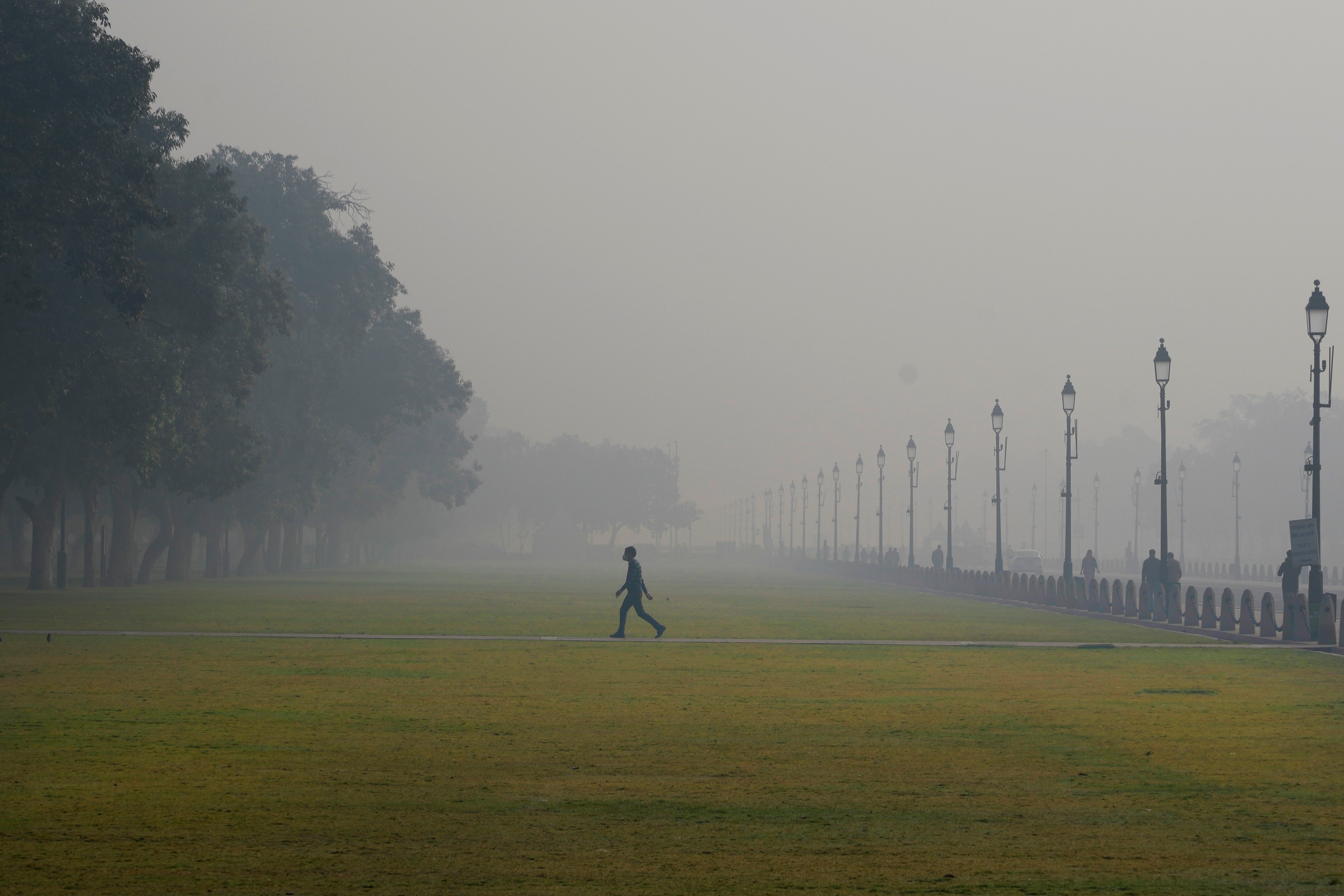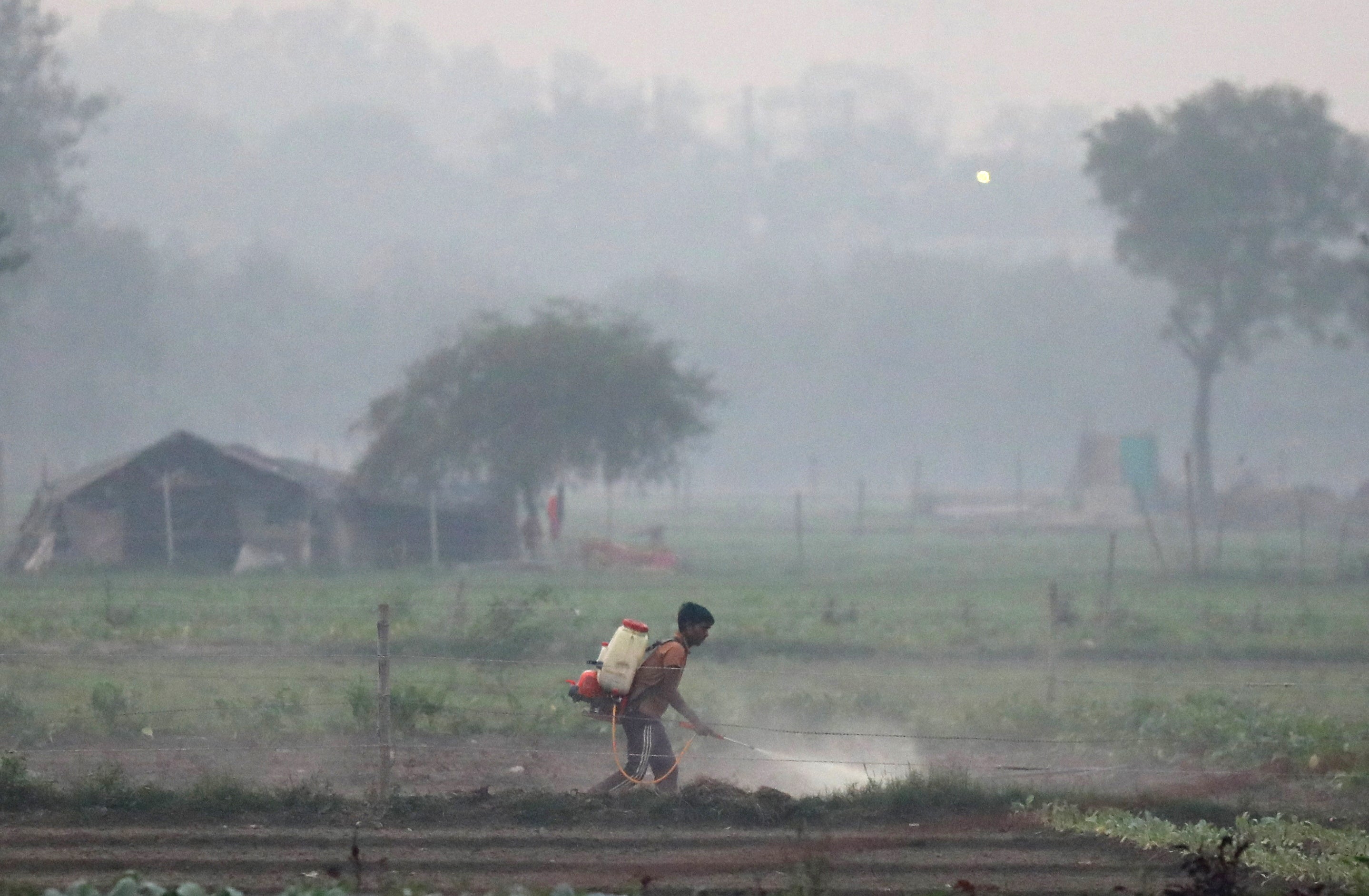Delhi orders immediate ban on fireworks ahead of Diwali as air quality worsens
Blanket ban part of government’s initiative to mitigate air pollution, says environment minister
The Delhi government has imposed a complete ban on the manufacturing, sale, storage, and use of all types of firecrackers in the Indian capital until the new year.
This measure, issued by the Delhi Pollution Control Committee (DPCC), is aimed at combating worsening air quality and includes restrictions on online sales and deliveries.
The ban comes ahead of the festive season that sees a surge in pollution in the Indian capital, enveloping the city in a thick blanket of toxic haze. On Sunday, a day after Dusshera – a Hindu festival commemorating the victory of Lord Ram over Ravana by burning his effigies – the air quality in the capital hit the “poor” category.
As of Monday noon, the Air Quality Index (AQI) stood at 228, according to data from the Central Pollution Control Board. AQI specifically measures the concentration of PM 2.5, which consists of fine particulate matter that can infiltrate the lungs and lead to various health issues.
Extended exposure to elevated pollution levels can result in discomfort and respiratory problems. It may also provoke skin and eye irritation and contribute to serious health conditions, including asthma, chronic obstructive pulmonary disease, bronchitis, reduced lung capacity, emphysema, cancer, and higher mortality rates.
The ban follows an initial announcement made on 9 September and officials confirmed that firecrackers will not be allowed during upcoming festivals, including Diwali, later this month.
During an inspection of construction sites, environment minister Gopal Rai emphasised the necessity of this ban to address the pollution spikes typically associated with firecracker use during the festive season.

“The blanket ban is part of the government’s broader initiative to mitigate air pollution and protect public health, particularly during the festive season in winter months when pollution levels spike to hazardous levels,” he stated.
“Today, the AQI has been reported in the ‘poor’ category, and as winter approaches, pollution tends to increase as temperatures drop,” he said, citing dust pollution, transport emissions, and biomass burning as the three main sources of pollution in the city.
“With this decision, we aim to take preventive action to ensure that our air remains breathable. The ban also includes strict measures to regulate the sale of firecrackers through online platforms,” Mr Rai added as he also called on residents to cooperate with the government’s efforts to improve air quality.
To ensure compliance, the Delhi Police will oversee enforcement of the ban and will provide daily reports to the DPCC.

Delhi has a history of banning firecrackers, starting in 2017 following a Supreme Court inquiry into the impact of such practices on air quality. In 2018, the court prohibited conventional firecrackers in the region, allowing only "green" alternatives. But due to challenges in distinguishing between the two types, a blanket ban on all firecrackers was instituted in subsequent years.
The ban on fireworks over the period has developed political overtones with some arguing it to be an attempt to target Hindu festivals.
A spokesperson of prime minister Narendra Modi’s Hindu right-wing Bharatiya Janata Party criticised the move saying that the Delhi government ruled by Aam Aadmi Party has not produced any report identifying firecrackers as the source of primary pollution in the city.
“The Delhi government is yet to present any scientific report proving that firecrackers burned on Diwali night significantly contribute to winter pollution," said Praveen Kapoor.
In 2023, Delhi’s AQI was recorded between 445 and 520 just a day after Diwali, placing it firmly in the "severe" category.

Delhi has struggled with hazardous air quality during the winter months for years, prompting the government to frequently implement early school closures to safeguard children. The city grapples with high pollution levels from various sources, including vehicle emissions and dust, throughout the year.
However, conditions worsen in winter when farmers in neighboring states engage in crop stubble burning. Additionally, low wind speeds trap pollutants, such as those emitted by firecrackers, close to the ground, significantly degrading air quality and making breathing difficult.
Join our commenting forum
Join thought-provoking conversations, follow other Independent readers and see their replies
Comments